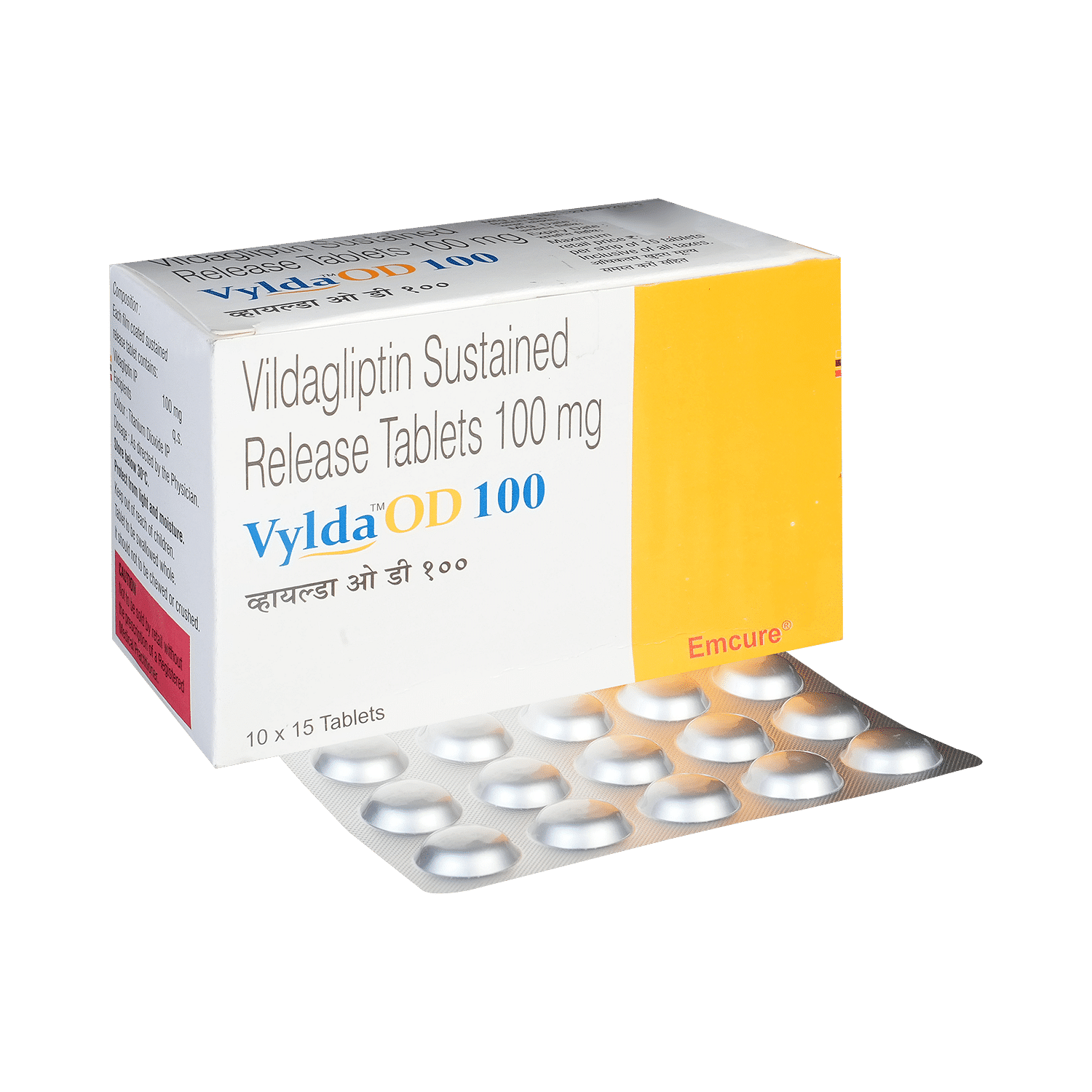
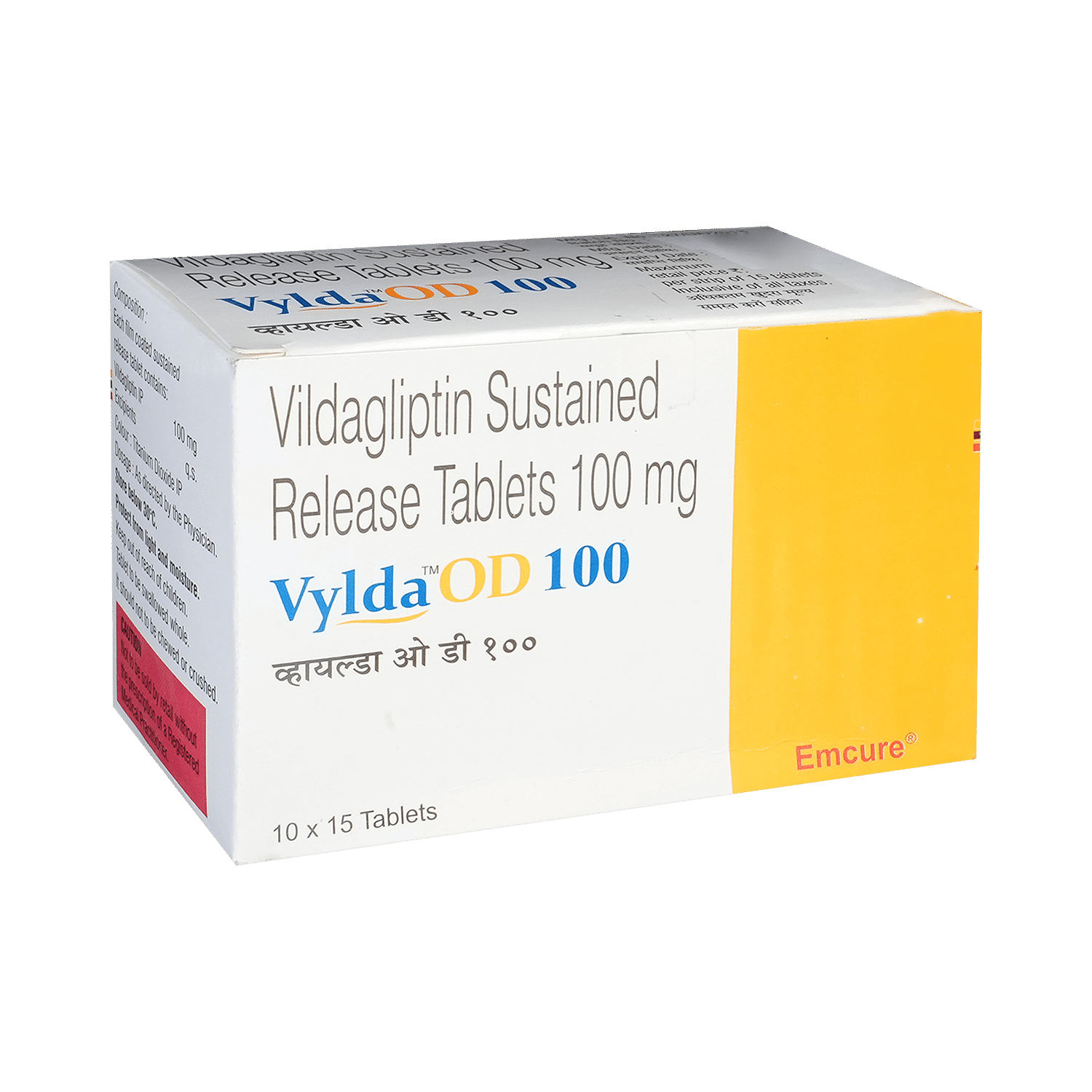
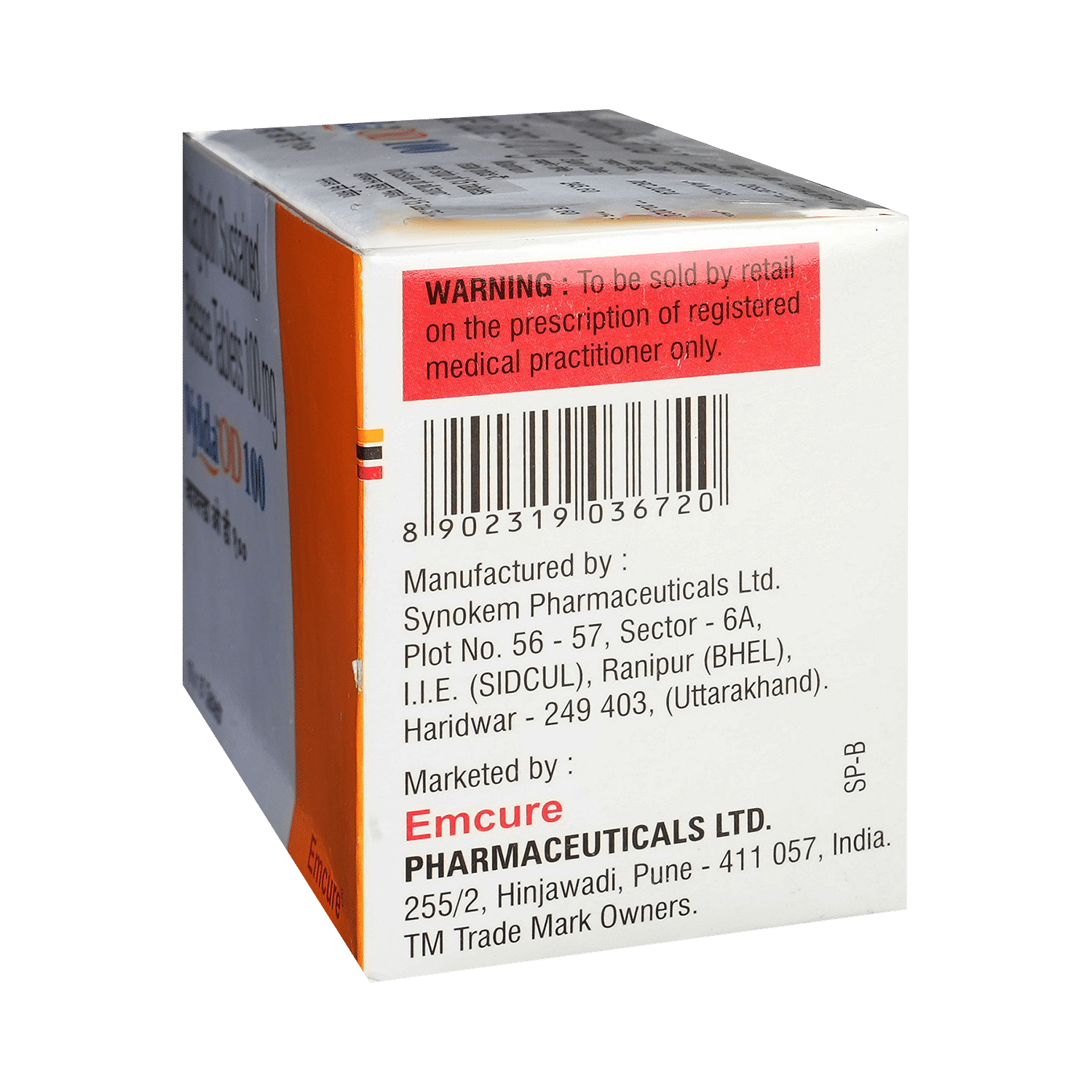
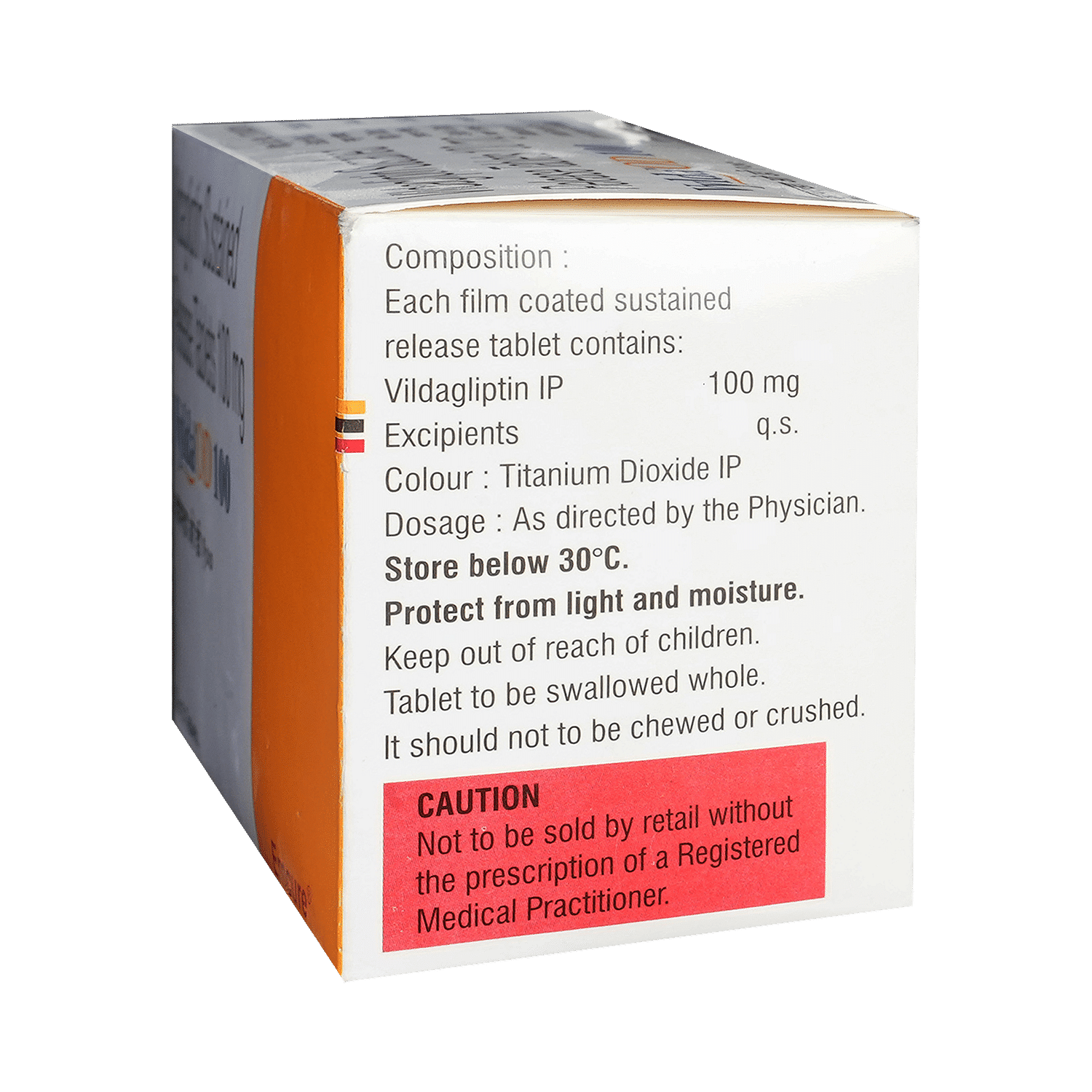
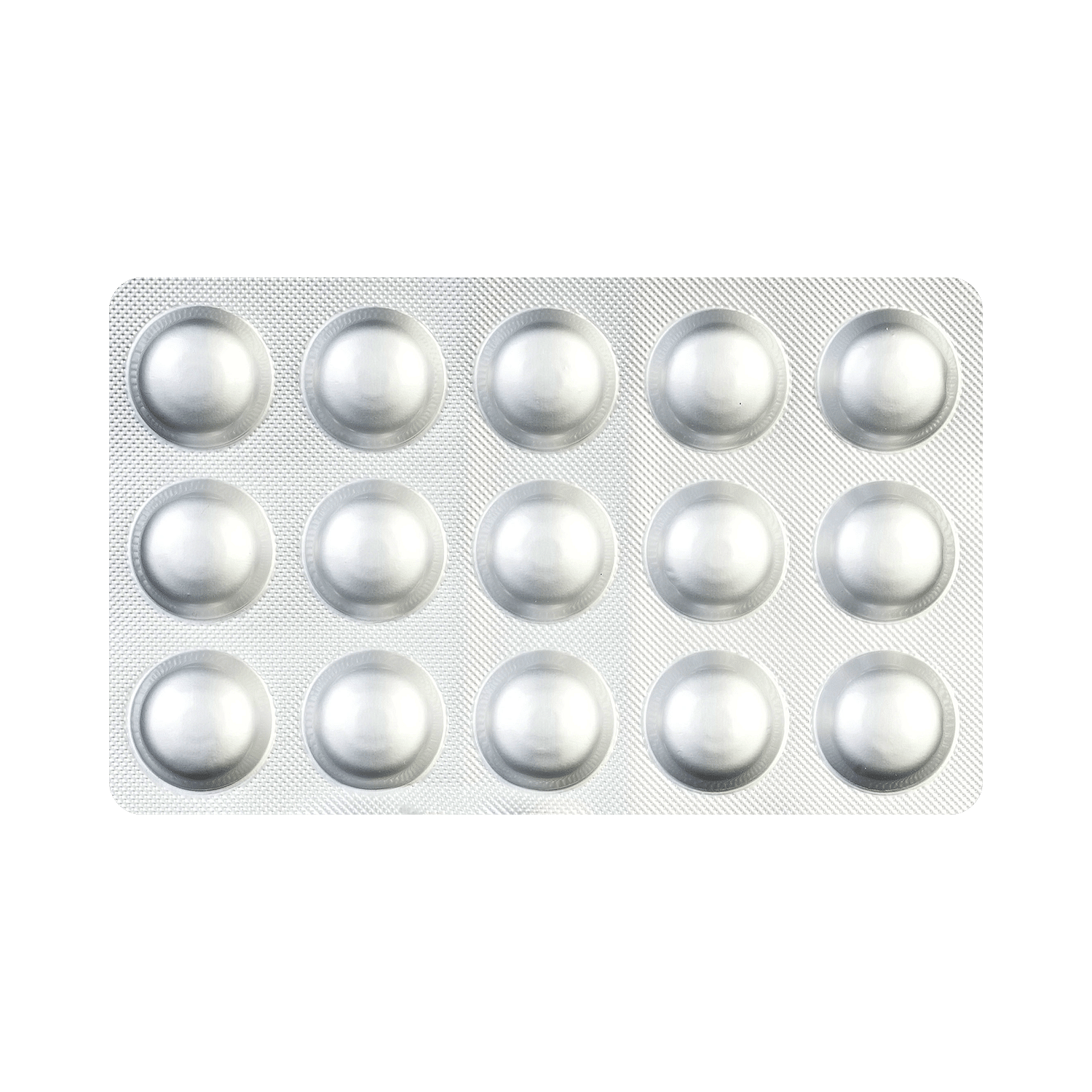
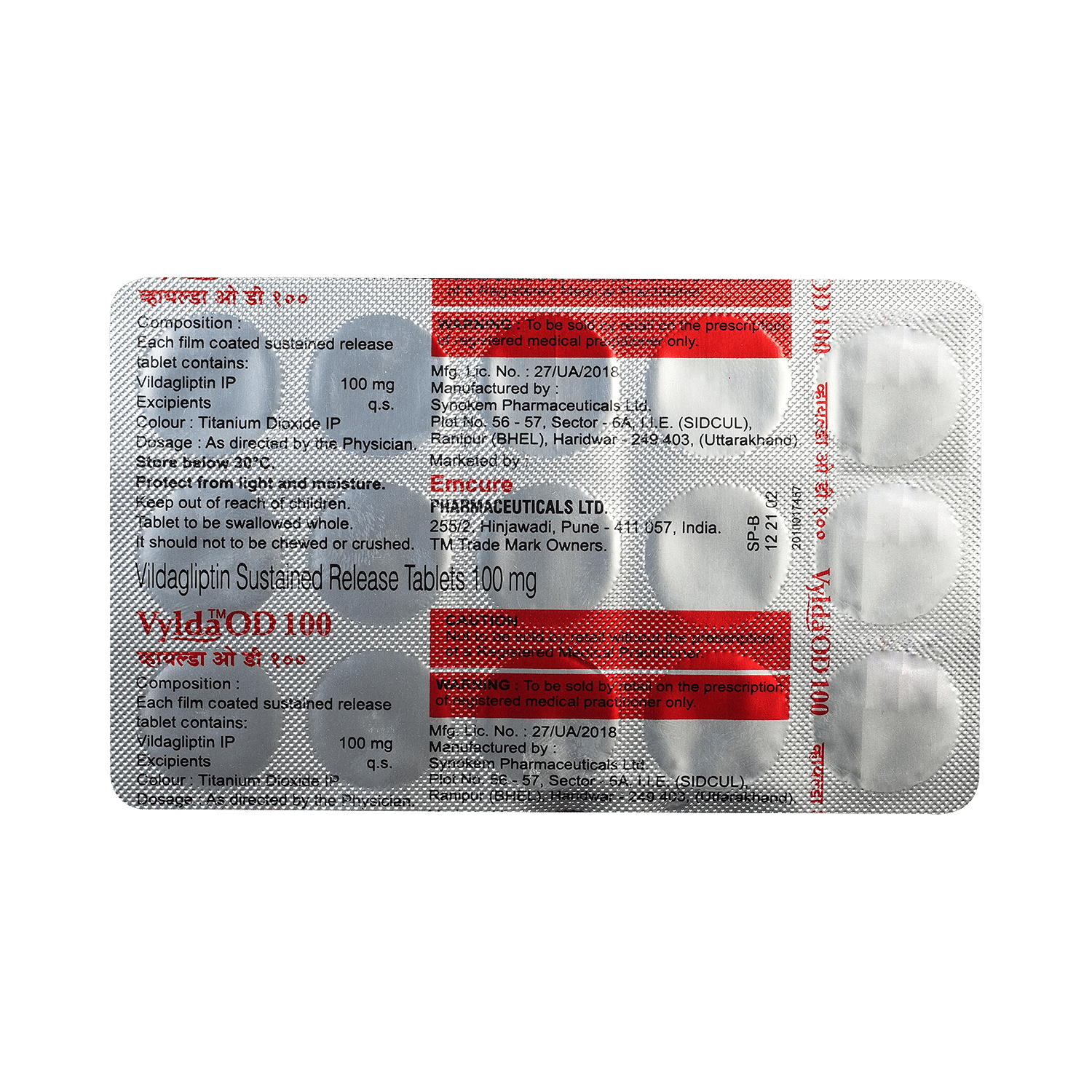
Vylda OD 100 Tablet SR
Manufacturer
Emcure Pharmaceuticals Ltd
Salt Composition
Vildagliptin (100mg)
Key Information
Short Description
Vylda OD 100 Tablet SR is a medicine used to treat type 2 diabetes mellitus, used together with a healthy diet and regular exercise to control blood sugar levels.
Dosage Form
Tablet SR
Introduction
Vylda OD 100 Tablet SR is normally prescribed when diet and exercise alone or other medicines do not prove sufficient to control your blood sugar level. It may prescribe alone or in combination with other diabetes medicines. It can be taken with or without food. The dose will depend on your condition and blood sugar levels. Use it strictly as advised by your doctor.
Directions for Use
Take this medicine in the dose and duration as advised by your doctor. Swallow it as a whole. Do not chew, crush or break it. Vylda OD 100 Tablet SR may be taken with or without food, but it is better to take it at a fixed time.
Safety Information
Side Effects
Hypoglycemia (low blood sugar level) Tremor Headache Dizziness Fatigue Nausea
Alcohol Warning
It is not known whether it is safe to consume alcohol with Vylda OD 100 Tablet SR. Please consult your doctor.
Breastfeeding Warning
Vylda OD 100 Tablet SR is probably unsafe to use during breastfeeding. Limited human data suggests that the drug may pass into the breastmilk and harm the baby.
Pregnancy Warning
Vylda OD 100 Tablet SR may be unsafe to use during pregnancy. Although there are limited studies in humans, animal studies have shown harmful effects on the developing baby. Your doctor will weigh the benefits and any potential risks before prescribing it to you.
Interacting Medicines
Amiloride Beclometasone Betamethasone Chlorthalidone
How it works
Vylda OD 100 Tablet SR is an antidiabetic medication. It works by increasing the release of insulin from the pancreas and decreasing the hormones that raise blood sugar levels. This reduces the fasting and postmeal sugar levels.
Quick Tips
Take Vylda OD 100 Tablet SR at the same time every day Always carry some sugary food or fruit juice with you in case you experience hypoglycemia symptoms Be careful while driving or operating machinery until you know how Vylda OD 100 Tablet SR affects you Your doctor may check your kidney and liver function before starting treatment and regularly thereafter
Related Medicines

Zomelis SR 100 Tablet

Vilsure 100mg Tablet SR

Gliptagreat OD 100 Tablet
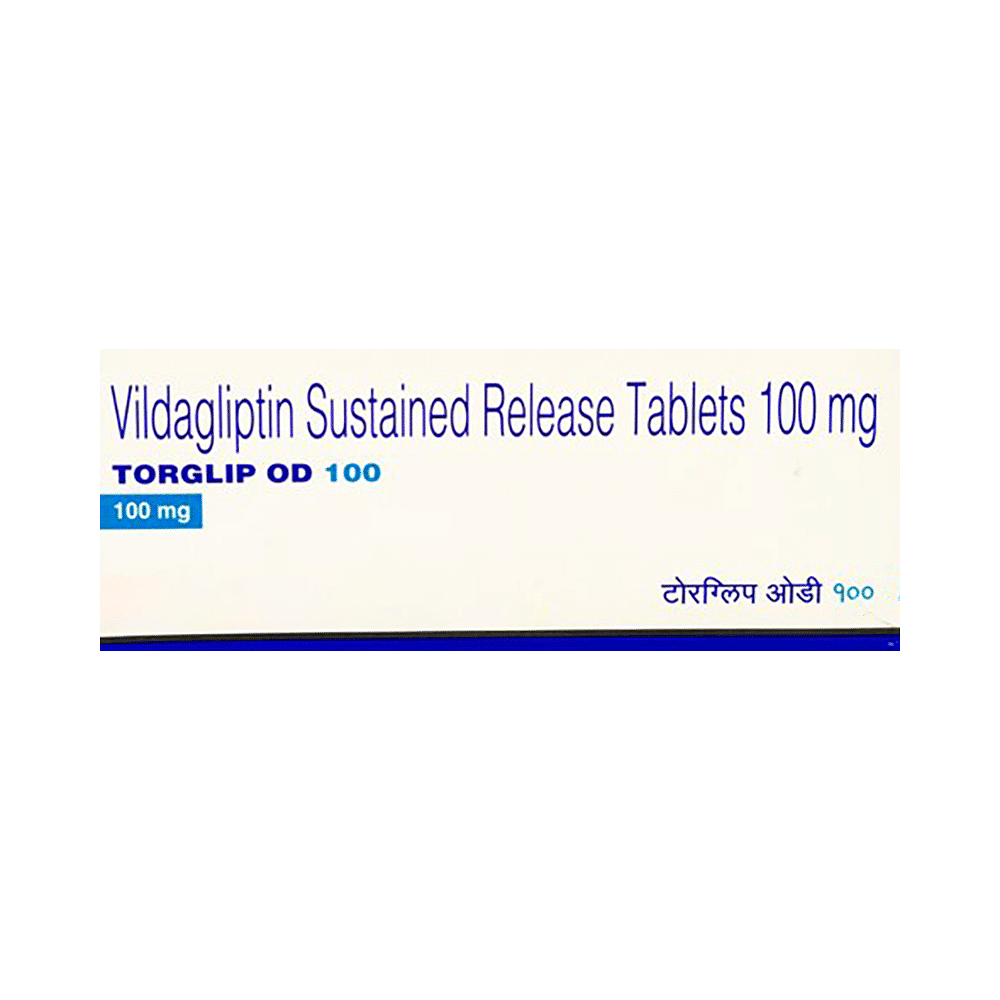
Torglip OD 100 Tablet
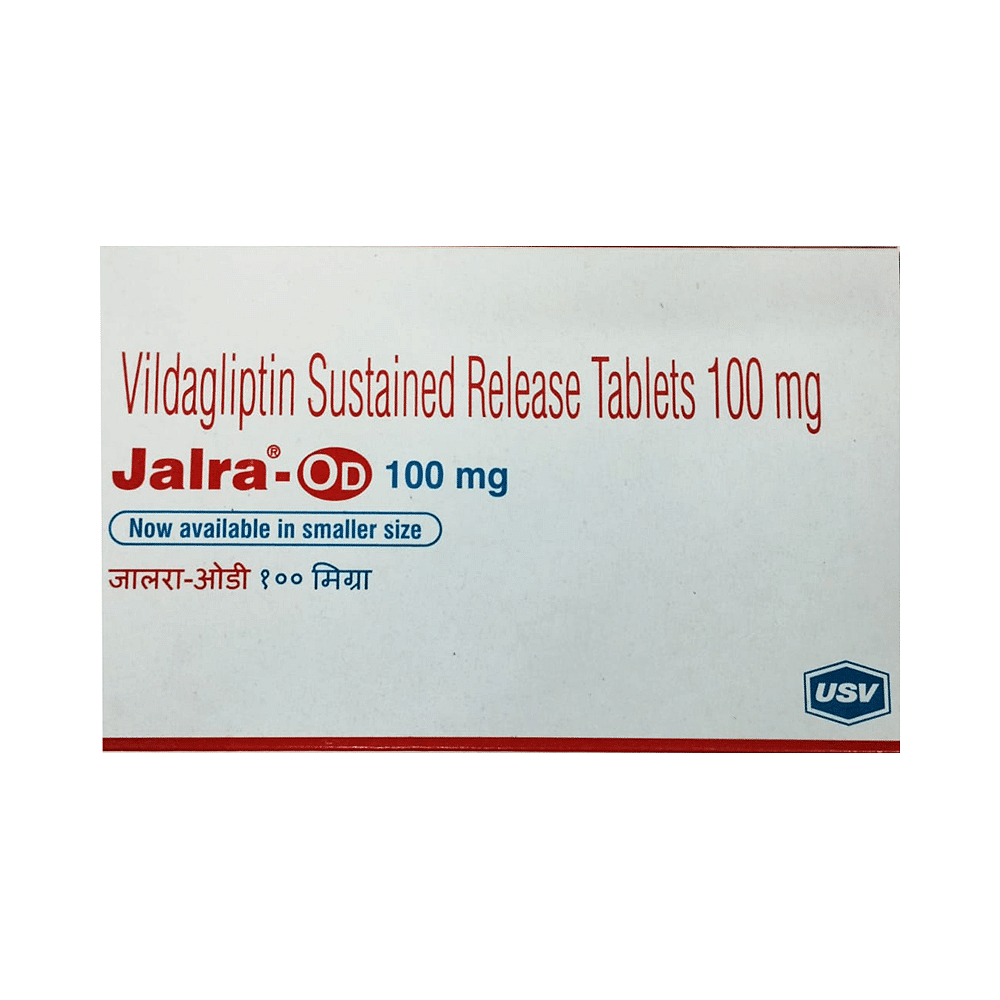
Jalra-OD 100mg Tablet

Dyovilda 100mg Tablet SR
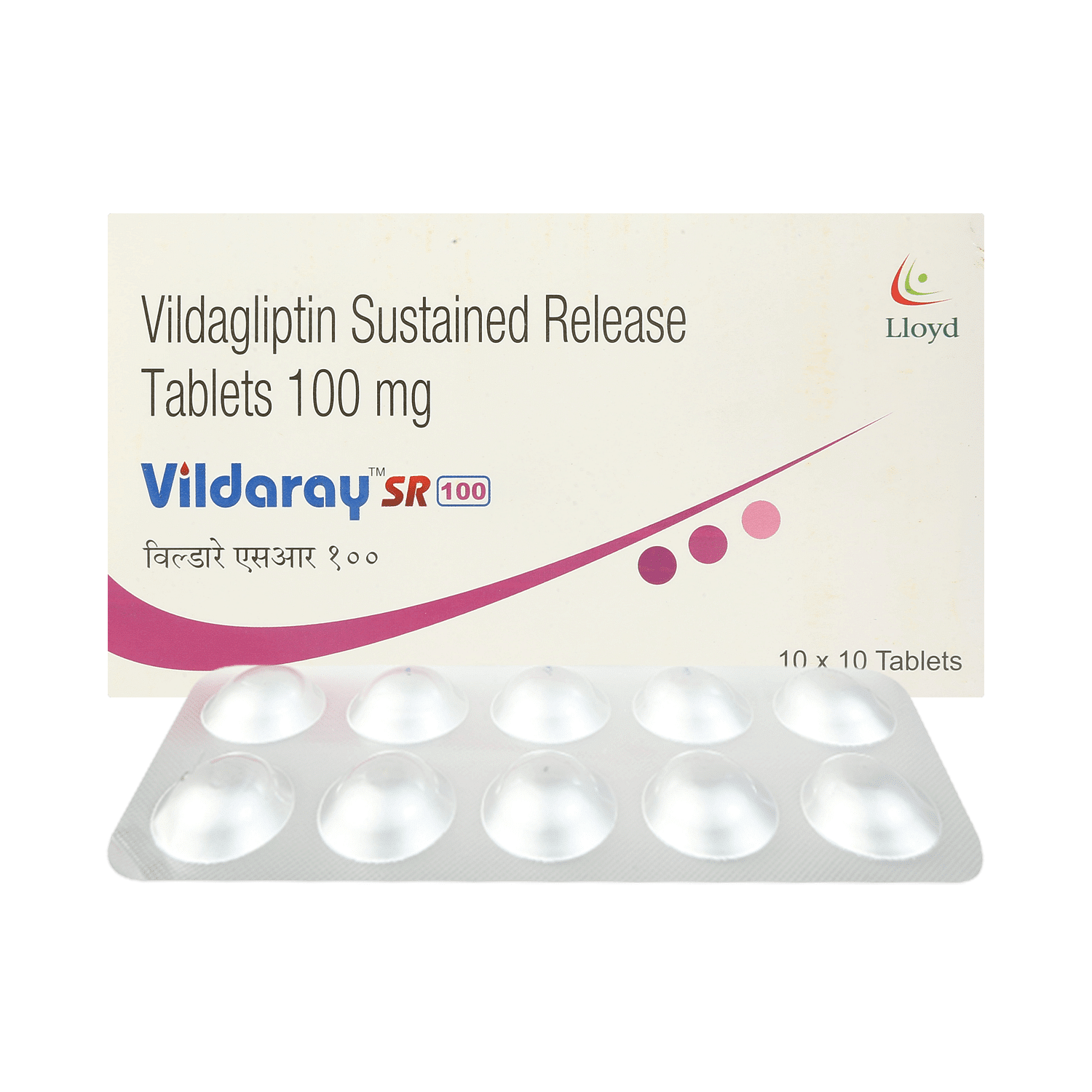
Vildaray SR 100 Tablet

Vilbuzz 100mg Tablet SR

Vildanat 100mg Tablet SR

Vildablis 100mg Tablet SR
Frequently asked questions
When should I take Vylda OD 100 Tablet SR?
You can take Vylda OD 100 Tablet SR tablets before, with or after meals. If you have been prescribed to take this medicine once daily, then take it in the morning. In case you have to take it twice daily, then you should prefer taking the first dose in the morning and the second dose in the evening.
Does Vylda OD 100 Tablet SR cause hypoglycemia?
Yes, Vylda OD 100 Tablet SR may cause hypoglycemia (low blood sugar). However, the chances are lesser compared to other antidiabetic drugs. Evidence suggests that treatment with Vylda OD 100 Tablet SR has been shown to cause hypoglycemia in very rare cases. The risk is low even in those who are prone to hypoglycemia like elderly people or people being treated with insulin. However, the chance of hypoglycemia increases if Vylda OD 100 Tablet SR is taken along with other antidiabetic drugs.
Does Vylda OD 100 Tablet SR cause weight gain?
No, Vylda OD 100 Tablet SR does not cause weight gain. Furthermore, medications like Vylda OD 100 Tablet SR are generally intended to decrease weight due to their effect on increasing satiety (feeling of fullness) and delaying the emptying of the stomach. This further decreases hunger, thereby preventing overeating.
Is Vylda OD 100 Tablet SR the same as sitagliptin?
No, Vylda OD 100 Tablet SR is not the same as Sitagliptin, but both drugs belong to the same class. Additionally, these two drugs have a similar mechanism of decreasing blood glucose levels.


